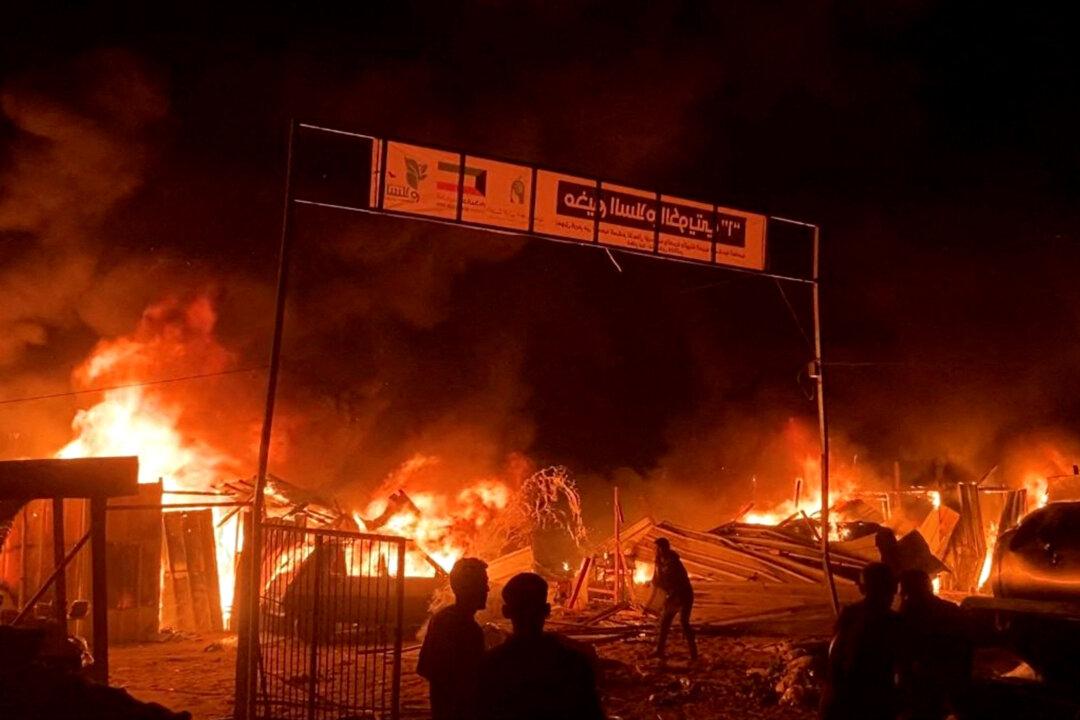An Israeli military spokesman has gone public with an active theory that it was secondary explosions, not the initial Israeli bomb blast, that resulted in civilian injuries and deaths following a strike in Rafah on Sunday night.
Israeli Prime Minister Benjamin Netanyahu described civilian deaths following a May 26 Israeli airstrike in Rafah as a “tragic mistake” and vowed the Israeli government would investigate the incident further. Israeli officials are now actively reviewing the strike.





